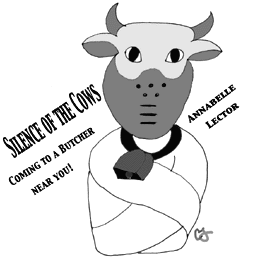|
Disease
could have been prevented By Hemi Ahluwalia Mad-cow disease.These are the three words that brought the European meat industry down to its knees. The disease is believed to cause a brain-wasting illness in humans and so far it has claimed the lives of more than 80 people in Great Britain and at least two in France. Mad-cow disease was first identified in Great Britain in 1986 and has cost the country billions of dollars in lost revenue. So what can we do to protect ourselves? For starters, it has caused millions of people to consider giving up meat for good and head into the world of vegetarianism. Personally, it has not caused me to take such drastic measures, but it has made me have second thoughts on whether I would have a hamburger or a chicken sandwich for lunch. Now, I realize the chance of mad-cow disease coming to the United States is rare and the government has said it will do everything possible to prevent it. But maybe their efforts are a little too late. According to the Associated Press, as of last week, the government began inspecting cattle in Austin. The 21 cattle in question were brought to the United States from Germany before 1997, the year the United States put a ban on importing European livestock. As a precaution, all of the cattle were destroyed and tested for any traces of Mad-cow disease or the more widely spread foot-and-mouth disease. That hits a little too close to home. And what about foot-and-mouth disease? It has also caused major problems for the livestock industry and it seems this disease can be spread faster and easier. This causes the United States to be at a greater risk at contracting this disease rather than mad cow. However this disease has not been known to cause any problems in humans. Well who cares? I certainly do not want to eat an animal that might carry a disease, even if it is not harmful to humans. And what about the fact that foot-and-mouth disease has struck the United States before? In 1929 the Unites States had to destroy thousands of livestock to stop the spread of the disease. Well if they knew back then about the disease, why is it a problem now? To me it seems like all of these problems could have been avoided. I would like to know who the person was who thought it would be OK to feed leftover cow parts to other cows. It’s like “Silence of the Cows.” Maybe we can get the cows from Chick-Fil-A to star in the movie. I for one, would not want to eat remains of humans, so why would cows want to eat the remains of their own kind? It’s very disgusting. So what happens if either of the diseases do cross the waters and infect the United States? I think if something like mad-cow disease ever did strike the United States it would be a national crisis. But there is some good news. TCU says that there is no way that any of the beef on campus could be infected with either diseases. That’s a relief, now all we have to worry about is whether or not our food has been coughed on before we are served. Hemi
Ahluwalia is a junior broadcast journalism major from Stephenville.
Editorial policy: The content of the Opinion page does not necessarily represent the views of Texas Christian University. Unsigned editorials represent the view of the TCU Daily Skiff editorial board. Signed letters, columns and cartoons represent the opinion of the writers and do not necessarily reflect the opinion of the editorial board. Letters to the editor: The Skiff welcomes letters to the editor for publication. Letters must be typed, double-spaced, signed and limited to 250 words. To submit a letter, bring it to the Skiff, Moudy 291S; mail it to TCU Box 298050; e-mail it to skiffletters@tcu.edu or fax it to 257-7133. Letters must include the author’s classification, major and phone number. The Skiff reserves the right to edit or reject letters for style, taste and size restrictions. |
The TCU Daily Skiff
© 1998, 1999, 2000, 2001
Web Editor: Ben Smithson
Contact Us!

